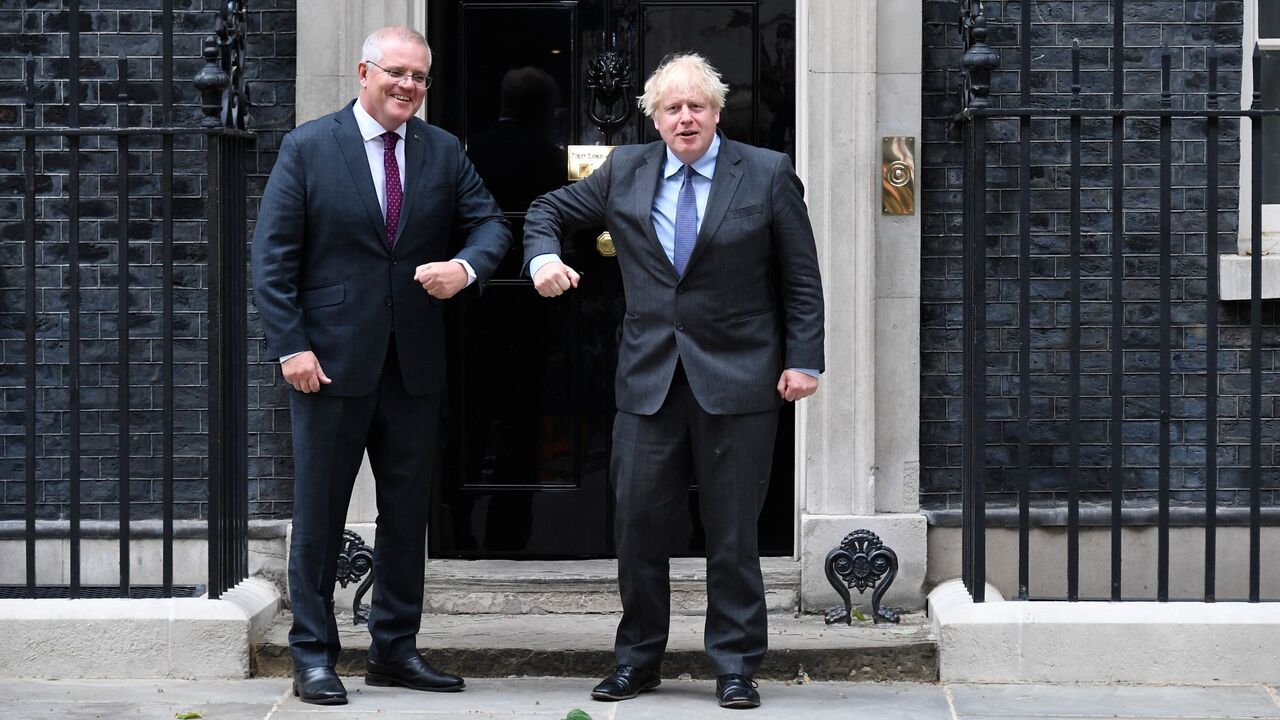Speaking in an interview with the website of the Strategic Council on Foreign Relations, Morteza Makki said: As long as Britain was present in the European Union, half of its trade was with the 27 members of the Union; under the post-Brexit arrangements between Britain and the European Union, London has continued its trade with members of the Union, but has been deprived of the benefits of gaining access to the single European market and has lost the benefits of trading with the Union.
According to the expert, Britain now has to sign new free trade agreements with other countries, in order to have new opportunities for gaining access to the alternative markets of the 27 members of the European Union. Therefore, after the 2016 Brexit referendum, the various governments of Britain, namely Theresa May and Boris Johnson, put the policy of signing free trade agreements with other countries, with the Anglo-Saxon and Commonwealth countries at the forefront, on their foreign and trade policy agenda.
Makki continued: In the past few years, especially since Joe Biden took office at the White House and Britain officially left the European Union in January 2021, political and diplomatic mobilization of that country to sign free trade agreements with the United States, Australia, India and some other eligible countries which also have large markets has been intensified.
The expert on Europe affairs, saying that signing of a free trade agreement with Australia can be considered within the framework of that British policy after the Brexit, said: Of course, signing of a free trade agreement with Australia is also important in another sense, and that is the signing of a tripartite security agreement between the United States, Australia and Britain dubbed AUKUS, which is part of China’s containment policy.
He continued: The AUKUS Pact is a turning point in security relations between the West and the changing political and security equations in the Pacific. Given the status of the AUKUS agreement, strengthening economic and trade ties between the three countries which speak the same language – Australia, the United States and Britain – is of great importance, and it can be said that we are witnessing strengthening of the three countries’ alignment against China with the signing of the free trade agreement between Australia and Britain.
According to Makki, signing of the agreement between Australia and Britain could pave the way for signing of a free trade agreement between the United States and Britain, and if such an agreement is signed, Britain will achieve a great economic and political achievement. It can also help the London government within the context of British mobility in the world arena.
The expert on Europe affairs also referred to the economic consequences of Brexit for Britain and said: The loss of the single European market has dealt a severe blow on the British economy, an example of which we witnessed in the disruption of gasoline distribution at petrol stations in that country in the past few months. The reason was said to be that the British transport industry due to being excluded from the single European market, was deprived of the presence of truck drivers from other European countries in the fuel distribution and transport market in Britain, and Britain lost the necessary economic benefits for drivers of other countries.
Saying that Britain was also facing other threats after leaving the European Union, he emphasized: Therefore the country is working to replace the EU market with other markets in order to reduce economic consequences of Brexit.
Makki continued by saying: This is while Britain will continue to be exposed to serious crises, such as the fuel crisis, in the short term. Whereas one of the advantages of the European single market was the quadruple free movement of capital, goods, services and the European citizens, which enabled the 500 million population of the European Union to engage in trade and economic activities and trade among the member states of the EU without any borders; but now Britain no longer has that advantage.
The expert, saying that London is the second largest financial center in the world, noted: Therefore if Britain cannot gain access to other world markets without tariffs and free movement; it may lose its position as a financial and service center in the EU and in the world.
He stressed: Therefore, one of the most important threats to Britain after the Brexit is that other European financial centers, such as Hamburg, have replaced London and EU members will certainly try to determine new financial and service centers instead of Britain and do their exchanges through that way.










0 Comments